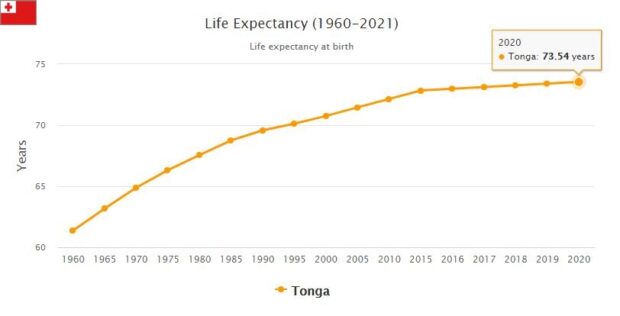Tonga is a country located in the South Pacific Ocean, bordered by Samoa and Fiji. According to homosociety, it has a population of 110,000 people and the official language is English. The currency is the Tongan Pa’anga (TOP). The capital city of Tonga is Nuku’alofa, which is also its largest city. Tonga’s economy relies heavily on its agricultural sector, with squash, yams and taro being the main exports. Services such as tourism and banking also play an important role in the economy. Tonga has a tropical climate with average temperatures ranging from 24-31°C during the day and 17-24°C at night. The country experiences two distinct seasons throughout the year with November to April being wetter than other months.
The first European to visit Tonga was the Dutchman Jakob Le Maire in 1616. James Cook came there in 1773 and named the archipelago Friendly Islands. In 1845 they were united into an independent kingdom. A friendship agreement with the United Kingdom was established in 1900, and from 1905 Tonga was ruled as a British protectorate. June 1970 the archipelago became independent and a member of the Commonwealth of Nations.
Royal monarchy
King Taufa’ahau Tupou 4 came to the throne in 1965 and ruled almost unanimously until his death in 2006. A pro-democracy reform movement was founded in 1992 and formed in 1994 Tonga’s first political party, the People’s Party, which has since been a leading party. However, most representatives in the legislative assembly are appointed by the king from the 33 noble families of the archipelago. Since the 1990s, the monarchy and the privileges of the nobility have been the subject of growing criticism. The government is appointed by the king, and the ministers have traditionally remained in their positions until they retire. In 2005, elected ministers joined the government for the first time. The pro-democrats demanded revision of the constitution of 1875, including that the prime minister should be elected. In 2006, Fred Sevele became the country’s first elected prime minister of non-noble burdens. See abbreviationfinder for geography, history, society, politics, and economy of Tonga.
- COUNTRYAAH.COM: Provides latest population data about Tonga. Lists by Year from 1950 to 2020. Also includes major cities by population.
Throne change and reform course
The new King Siaosi Tupou 5 was crowned on August 1, 2008, followed by traditional celebrations for eight days to end. With a royal proclamation, the monarch took a long step away from the traditional monarchy of the South Pacific’s only kingdom. As part of an ongoing democratization process, he promised to relinquish the monarch’s almost absolute power and renounce the right to appoint the country’s prime minister. In 2010, this right was transferred to parliament. The prime minister could now choose his ministers without royal interference, and the monarch was given mainly representative and ceremonial duties.
The reforms came in the wake of Toga being shaken by the most violent riots in recent times. It was the rage of the crowd that for over a year Parliament had failed to decide on a proposal for democratic reform. Most of the buildings in the business district of the capital Nuku’alofa were looted and set on fire. At least eight protesters died during battles with police and military, and Australia and New Zealand sent 150 policemen and soldiers to order the city.
The government partially rejected the protesters’ demands: In 2010, elections were held under a new constitution, including a new electoral system which ensures that a majority of parliamentarians should be elected. Today, the elected representatives count 24 out of a total of 33 parliamentarians. In the past, the king has appointed 15 of the representatives of the noble families of the archipelago, while the nobility has appointed nine of its own.
Tonga gained a seat at the UN in 1999, and in 2005 joined the World Trade Organization (WTO). A friendship agreement with the United States of 1988 grants American naval vessels, possibly with nuclear weapons, the right to travel in Tonga’s territorial waters. Tonga had 55 soldiers in Iraq to support the United States, but the force was withdrawn in December 2008.
